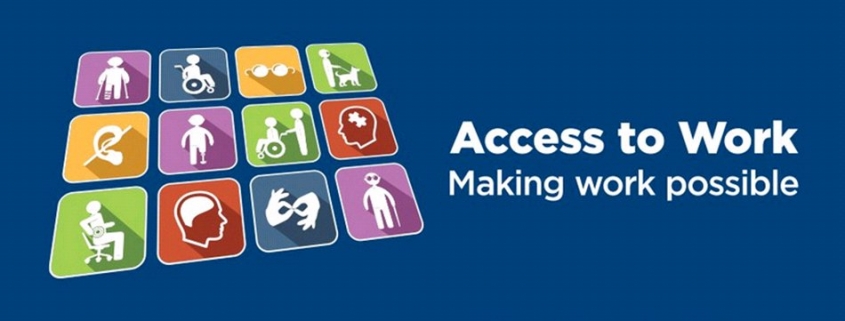The Government’s Access to work scheme explained
The Access to Work scheme is often mentioned in the same breath a disability and employment, but it’s not as well-known by the general public as the Government would have you believe.
If you’ve heard of the scheme but aren’t sure what it’s all about, then keep reading!
What is the Access to Work scheme?
Access to Work is a government programme created to support disabled people who want to start or stay in work.
The scheme provides a discretionary grant that provides personalised support to people with a disability or long term physical or mental health condition.
It covers Mainland Great Britain, but not Northern Ireland, where there is a separate service in place.
Who is eligible?
Anyone who is registered as disabled in the UK can apply, as long as they meet the following criteria:
- are normally resident in, and working in, Great Britain
- have a disability or long term health condition that means you need an aid, adaptation or financial or human support to do your job (long term means lasting or likely to last for at least 12 months)
- have a mental health condition and need support in work
- are aged 16 or over
You must also:
- already be doing paid work
- be about to start work or become self-employed
- have an interview for a job
- be about to begin a work trial or start work experience under the Youth Contract arranged through Jobcentre Plus
How can it help deaf and hard of hearing people?
Obviously deaf and hard of hearing people can do the same jobs as anyone else, but the circumstances of the job may need a little tweaking.
Some deaf people rely on communication support or assistive technology in order to be able to do their jobs, and this is where the grant can help.
Access to Work can help pay for support you may need because of your hearing impairment, including things like an interpreter, special equipment, or live captions for business meetings.
How much money do you get?
There is no set amount for an Access to Work grant, how much you get depends on your circumstances.
The money only covers the support you need to let you stay in employment and is capped at £62,900.
In Northern Ireland, it is capped at £4,000 and they will dictate which interpreters you are allowed to book.
It does not have to be paid back and will not affect your other benefits.
Claiming during COVID
During the COVID-19 pandemic, you can still apply and receive an Access to Work grant if you disability makes it hard for you to do your job.
You may be able to get help with working from home, at your normal workplace, or a combination of both.
If you employ your own support worker and have additional costs for personal protective equipment (PPE), Access to Work may be able to provide funding.
For deaf and hard of hearing people, ATW can also provide funding for remote support services, such as video remote interpreting or British Sign Language interpreting.
We can help with your unique needs
If you need help working with your disability, regardless of Access to Work funding, then we can help.
Our founder and director Tina Lannin discovered how hard it was to get good communication support while at university and during her career, and so founded 121 Captions with the aim of making life easier for deaf and hard of hearing people.
121 Captions provide live captioning (Speech to Text, CART, palantypists, stenographers, electronic notetaking), offline captions, and sign language interpreters.
121 Captions is owned and run by deaf people, we know first hand how difficult life can be for those with a hearing loss.
The Access to Work programme is an important but often overlooked scheme which as many deaf people as possible should be taking advantage of.
Check out our helpsheet on applying for funding from Access to Work.
If you need help with challenging Access to Work decisions, contact Darren at Deaf ATW.
Contact us today if you have any questions about how we can help.




Leave a Reply
Want to join the discussion?Feel free to contribute!